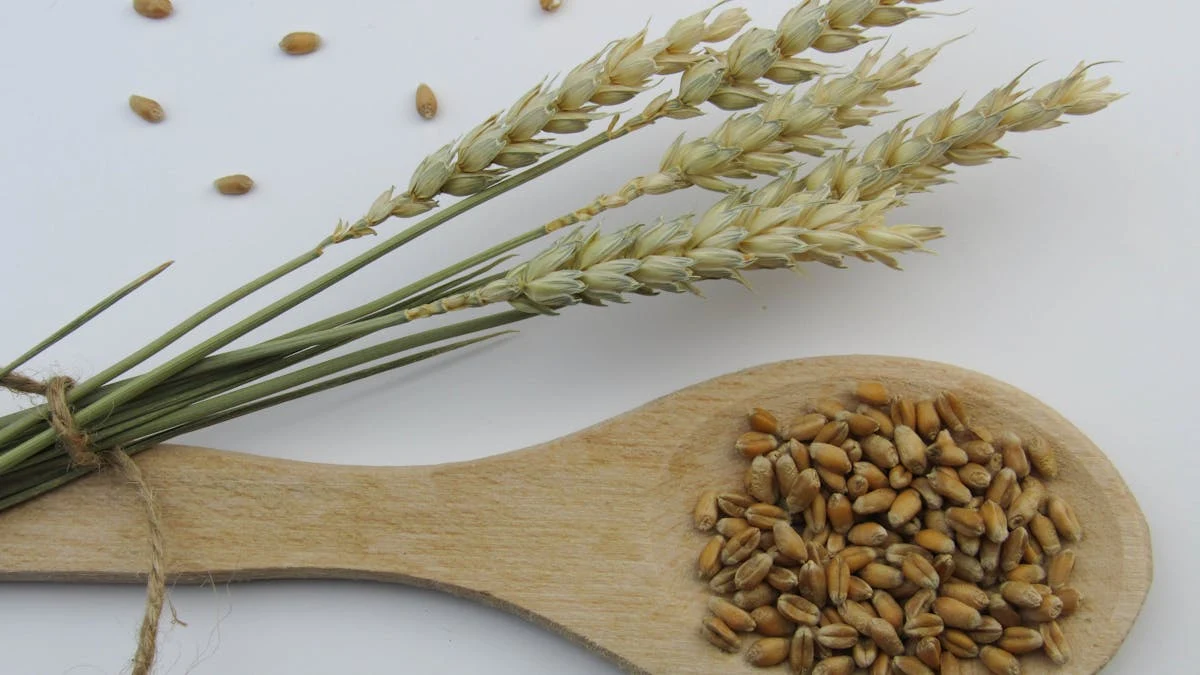In a world brimming with quick-fix diets and trendy weight loss supplements, the journey towards effective fat loss often gets lost in a maze of misinformation and unsustainable practices.
The truth is, achieving and maintaining a healthy weight isn't just about looking good — it's a key component of your overall well-being. This is where the power of natural solutions comes into play, offering a harmonious blend of health, sustainability, and effectiveness.
In this article, we’ll explore natural foods that not only nourish your body but also boost your metabolism and explore lifestyle changes that can significantly impact your fat-loss efforts.
By adopting these approaches, you're not just losing weight; you're embracing a healthier, more balanced lifestyle that benefits your body in the long term.
List of Natural Fat Burning Solutions
- Green Tea: Rich in catechins and caffeine, it boosts metabolism and enhances the body's ability to burn fat, especially when consumed regularly.
- Whole Grains: Contain complex carbohydrates and are high in fiber, promoting longer satiety and a slower release of energy, aiding in weight management.
- Lean Proteins: Essential for building and maintaining muscle mass; higher muscle mass increases metabolic rate, aiding in more effective fat burning.
- Spices (like Cayenne Pepper): Contain capsaicin, which increases thermogenesis, leading to higher calorie burn and enhanced fat loss.
- Citrus Fruits: High in vitamin C and have a diuretic effect; aid in detoxification and can improve metabolism, contributing to fat loss.
- Quality Sleep: Adequate sleep regulates appetite hormones and improves metabolic functions, playing a crucial role in effective fat loss.
- Stress Management: Reducing stress lowers cortisol levels, which is beneficial in preventing fat storage, especially in the abdominal area.
- Hydration: Water is essential for fat metabolism and can help control appetite, making it a key element in weight management.
- Mindful Eating: Involves being fully present and attentive while eating, helping to prevent overeating and making healthier food choices.
- Conjugated Linoleic Acid (CLA): A supplement that can help reduce body fat by enhancing the ability to convert food into energy and inhibiting fat cell production.
- Omega-3 Fatty Acids: Found in fish oil and flaxseed; they regulate blood sugar levels and reduce inflammation, aiding in weight loss.
- Probiotics: Beneficial bacteria that improve gut health; certain strains can help regulate appetite and energy use, contributing to weight loss.
- High-Intensity Interval Training (HIIT): Involves short bursts of intense exercise followed by rest; boosts metabolism and increases calorie burn both during and after exercise.
- Strength Training: Builds and maintains muscle mass; more muscle increases resting metabolic rate, leading to more effective fat burning over time.
- Yoga and Pilates: Stress-reducing exercises that improve muscle tone and strength, enhancing the mind-body connection and aiding in weight management.
Table of Contents
- Basics of Fat Loss
- Natural Foods That Aid Fat Loss
- Lifestyle Changes to Enhance Fat Burning
- Effective Natural Supplements for Fat Loss
- Exercise Strategies That Complement Natural Fat Loss
- Conclusion
Basics of Fat Loss: How the Body Burns Fat
The process of fat loss, at its core, is quite straightforward: it occurs when your body uses more energy than it consumes. This energy deficit forces your body to tap into stored fat for fuel.
Fat cells in your body store energy in the form of triglycerides. During the fat-burning process, these triglycerides are broken down into glycerol and fatty acids, which are then utilized for energy.
When you consume fewer calories than your body needs for daily activities, it turns to these fat reserves. The type of food you eat also plays a crucial role in how efficiently your body can access and burn this stored fat.
For instance, foods high in protein and fiber can help you feel fuller for longer, reducing overall calorie intake.
The Role of Metabolism in Fat Loss
Metabolism is the process by which your body converts what you eat and drink into energy. This complex biochemical process combines calories with oxygen to release the energy your body needs to function.
Several factors like age, gender, muscle mass, and activity level can influence Your metabolic rate.
Muscle tissue is more metabolically active than fat tissue. Therefore, increasing muscle mass can help boost your metabolic rate, making it easier for your body to burn calories and, consequently, fat. Engaging in both aerobic exercises and strength training can optimize your metabolism to favor fat loss.
Debunking Common Fat Loss Myths
Myth: Eating Fat Makes You Fat
This is one of the most persistent myths. The truth is, that fats are essential for a healthy diet. It's the type of fat and the overall calorie intake that matter. Healthy fats, like those found in avocados, nuts, and olive oil, can actually help in weight loss.
Myth: Drastic Calorie Reduction is the Most Effective Way to Lose Fat
While a calorie deficit is necessary for weight loss, too large a deficit can be counterproductive. Extreme calorie restriction can slow down your metabolism and lead to muscle loss, making it harder to maintain weight loss in the long term.
Myth: All Calories Are Created Equal
This overlooks the fact that different foods undergo different metabolic pathways and can have vastly different effects on hunger and the hormones that regulate body weight. For instance, protein calories can boost metabolism and reduce appetite compared to the same amount of calories from fat or carbs.
Myth: Weight Loss Supplements Can Replace Diet and Exercise
No supplement can replace the foundational role of a healthy diet and regular exercise. Some supplements may support these efforts, but they are not magic bullets.
Related: Debunking Weight Loss Myths to Help You Reach Your Goals
Weight loss is not about quick fixes or following the latest trend; it's about making sustainable changes to your lifestyle that support the natural processes of your body.
🍽️ Portion Control Tip: Use smaller plates for your meals to naturally reduce portion sizes without feeling deprived.
Natural Foods That Aid Fat Loss
Certain natural foods can significantly aid in fat loss by boosting metabolism, enhancing digestion, and keeping you full for longer.
Green Tea: Benefits and How It Boosts Metabolism
The secret behind green tea's fat-burning prowess lies in its composition - it is rich in catechins, particularly epigallocatechin gallate (EGCG), and caffeine.
These compounds synergistically help to enhance metabolism and increase the amount of energy the body uses.
Studies have shown that the catechins in green tea can boost your metabolic rate and increase fat burning in the short term, making it not just a soothing beverage but a potent weight loss aid. (1)
For optimal results, integrating 2-3 cups of green tea into your daily routine can kick-start your metabolism.
Related: How Green Tea Can Help You Lose Weight and Boost Your Metabolism
Whole Grains: Why Complex Carbohydrates Are Better
Whole grains, as opposed to refined grains, are rich in fiber and take longer to digest. This slower digestion process means that they have a gentler effect on blood sugar and insulin, keeping you full and energized for longer.
Foods like brown rice, oats, quinoa, and barley not only provide essential nutrients but also help in controlling appetite. Their high fiber content also promotes healthy digestion, which is crucial for effective weight management.
Lean Proteins: Importance in Muscle Building and Fat Loss
Lean protein sources such as chicken breast, turkey, fish, legumes, and tofu are not just low in fat; they are fundamental in building and maintaining muscle mass. Muscle tissue burns more calories than fat tissue, even at rest, so increasing your muscle mass can help you burn more calories daily.
Moreover, protein has a high thermic effect, meaning your body uses more energy to digest it compared to fats and carbohydrates. This increased energy expenditure can help in fat loss. Additionally, protein is satiating, which helps in reducing overall calorie intake by keeping hunger pangs at bay.
Related: The Importance of Protein for Weight Loss
Spices Like Cayenne Pepper: How They Help in Increasing Thermogenesis
Capsaicin, the compound that gives these spices their heat, is known for its thermogenic properties. It increases body temperature and, in turn, boosts metabolism.
By incorporating spices like cayenne pepper into your diet, you can enhance thermogenesis – the body's process of producing heat – which in turn boosts calorie burning. Even a small amount can have a significant effect, making these spices a simple yet effective tool for enhancing fat loss.
Related: How Cayenne Pepper Ignites Your Metabolism for Weight Loss
Citrus Fruits: Role in Detoxification and Metabolism Enhancement
Citrus fruits like oranges, lemons, and grapefruits play a role in detoxifying the body and enhancing metabolic processes. The high vitamin C content in these fruits is crucial for the production of carnitine, a compound that helps the body convert fat into energy.
Additionally, citrus fruits have a diuretic effect, which helps in reducing water retention and bloating. Their fiber content also aids digestion and promotes a feeling of fullness, contributing to lower calorie intake.
Incorporating these natural foods into your diet can significantly aid your fat-loss efforts.
🥦 Veggie Hack: Fill half your plate with vegetables to increase fiber intake and feel full on fewer calories.
Lifestyle Changes to Enhance Fat Burning
While diet and exercise are crucial components of fat loss, certain lifestyle changes can significantly enhance the process. Understanding and adapting these aspects of your daily life can lead to more effective and sustainable fat burning.
Importance of Sleep and Its Effect on Weight Loss
Lack of adequate sleep can disrupt hormonal balance, particularly the hormones leptin and ghrelin, which regulate appetite. When you're sleep-deprived, ghrelin (the hunger hormone) levels increase, while leptin (the satiety hormone) levels decrease, leading to increased hunger and appetite.
Moreover, poor sleep can affect your metabolism and your body's ability to process carbohydrates, leading to fat storage.
Aim for 7-9 hours of quality sleep per night to ensure your body functions optimally, supporting your fat loss goals.
How Stress Affects Weight and Ways to Manage It
Chronic stress leads to elevated cortisol levels, a hormone that, in excess, can increase appetite and drive abdominal fat storage.
Managing stress is therefore vital in the quest for effective fat burning. Techniques such as meditation, yoga, deep breathing exercises, and engaging in hobbies can significantly reduce stress levels.
Remember, a calm mind often leads to a healthier body.
The Role of Water in Fat Metabolism
Water is essential for the body's metabolic processes, including fat metabolism. It helps in the breakdown and elimination of fat by-products and keeps your metabolism running efficiently.
Drinking enough water can also aid in appetite control. Sometimes, the body confuses thirst with hunger, so staying well-hydrated can prevent unnecessary snacking.
As a general guideline, aim for at least 8-10 glasses of water a day, or more if you are active or live in a hot climate.
How Being Mindful Can Prevent Overeating
Mindful eating is about being fully present during meals, paying attention to the taste, texture, and aroma of your food, and listening to your body's hunger and fullness cues. This practice can prevent overeating and help you make healthier food choices.
To practice mindful eating, eat slowly and without distraction, savor each bite, and listen to your body's signals. This approach not only enhances the enjoyment of your meals but also allows you to recognize when you are full, reducing the likelihood of overeating.
Adopting these lifestyle changes can significantly boost your fat-burning efforts. They are not quick fixes but rather sustainable practices that can improve your overall well-being and support your weight loss in the long term.
Related: How to Reduce Body Fat with Lifestyle Changes
😴 Sleep Check: Set a consistent bedtime and wake-up time to regulate your body's internal clock for better fat burning.
Effective Natural Supplements for Fat Loss
Natural supplements can play a supportive role alongside a balanced diet and exercise regimen. While no supplement is a magic solution for weight loss, some have been shown to offer benefits that can enhance your fat-burning efforts.
Conjugated Linoleic Acid (CLA): Benefits and Research
Conjugated Linoleic Acid (CLA) is a type of polyunsaturated fat, naturally found in meat and dairy products, that has garnered attention for its weight loss benefits. Studies suggest that CLA can help reduce body fat by enhancing the ability of your body to convert food into energy and by inhibiting fat cell production.
Research indicates that CLA can be modestly effective in fat loss, particularly in reducing fat mass, with some studies showing an average fat loss of about 0.2 pounds (0.1 kg) per week, for up to six months. (2)
However, it's important to note that CLA is not a standalone solution for weight loss but can be an effective addition to a healthy lifestyle.
Omega-3 Fatty Acids: How They Aid in Fat Loss
Omega-3 fatty acids, found in fish oil and flaxseed, are well-known for their heart health benefits, but they also play a role in weight management. These fatty acids help regulate blood sugar levels and reduce inflammation, both of which are beneficial for weight loss. (3, 4)
Additionally, Omega-3s can enhance the body’s ability to burn fat by boosting your metabolic rate. They may also help increase feelings of fullness, leading to reduced calorie intake.
Incorporating Omega-3 supplements or Omega-3 rich foods like salmon, mackerel, and walnuts can be a valuable part of your fat loss strategy.
Probiotics: Their Role in Gut Health and Weight Management
Probiotics are beneficial bacteria that play a crucial role in gut health. Emerging research suggests that the balance of gut flora can influence body weight, fat distribution, and metabolism. (5)
Certain strains of probiotics, such as Lactobacillus gasseri, Lactobacillus rhamnosus, and Bifidobacterium lactis, have been found to aid in weight loss and fat reduction. (6, 7, 8)
These probiotics may help regulate appetite and energy use, reduce inflammation, and improve gut barrier function, all of which can contribute to weight loss.
Incorporating probiotic supplements or probiotic-rich foods like yogurt, kefir, and sauerkraut can support your gut health and potentially aid in your weight management efforts.
Safety and Considerations When Choosing Supplements
While natural supplements can be beneficial, it's important to approach them with caution:
- Consult Healthcare Providers: Always consult with a healthcare professional before starting any supplement, especially if you have underlying health conditions or are taking medication.
- Quality and Purity: Opt for supplements from reputable manufacturers to ensure quality and purity. Look for certifications from third-party organizations.
- Realistic Expectations: Understand that supplements are not miracle solutions. They should be used in conjunction with a healthy diet and exercise.
- Side Effects and Interactions: Be aware of potential side effects and interactions with other supplements or medications.
- Dosage and Instructions: Follow the recommended dosage and usage instructions to ensure safety and effectiveness.
While supplements can support fat loss, they should be part of a broader approach that includes a balanced diet, regular exercise, and healthy lifestyle choices.
Approaching weight loss holistically is the key to long-term success and well-being.
🥤 Hydration Reminder: Carry a water bottle with you at all times as a reminder to stay hydrated throughout the day.
Exercise Strategies That Complement Natural Fat Loss
While dietary changes are fundamental for fat loss, incorporating the right exercise strategies can significantly enhance and accelerate your results. Exercise not only helps in burning calories but also improves metabolism, builds muscle, and positively impacts overall health.
High-Intensity Interval Training (HIIT): Its Effectiveness in Burning Fat
High-Intensity Interval Training (HIIT) has gained immense popularity as an efficient fat-burning workout. HIIT involves short bursts of intense exercise followed by brief periods of rest or lower-intensity exercise. This method is highly effective for burning fat for several reasons:
- Increased Calorie Burn: HIIT can burn a considerable number of calories in a short amount of time, making it ideal for those with busy schedules.
- Afterburn Effect: HIIT raises your metabolic rate for hours after exercise. This phenomenon, known as excess post-exercise oxygen consumption (EPOC), means you continue burning calories long after the workout has ended.
- Fat Oxidation: Research shows that HIIT can improve fat oxidation, which means your body gets better at burning fat for fuel. (9)
- Suitable for All Levels: HIIT workouts can be modified for people at different fitness levels and with various exercises, making them accessible to many.
Related: The Benefits of High-Intensity Interval Training for Weight Loss
🚶 Activity Boost: Take a brisk 10-minute walk after meals to aid digestion and slightly boost your metabolism.
Strength Training for Maintaining Muscle Mass During Weight Loss
Strength training, often overshadowed by cardiovascular exercises in the context of weight loss, is equally crucial. This form of exercise involves using resistance to induce muscular contraction, which builds the strength and size of skeletal muscles. The benefits of strength training in fat loss include:
- Preserving Muscle Mass: When losing weight, it's important to maintain muscle mass. Strength training helps ensure that the weight lost is predominantly fat and not muscle.
- Increased Resting Metabolic Rate: Muscle tissue burns more calories at rest compared to fat tissue. By increasing your muscle mass, you boost your resting metabolic rate, thereby burning more calories throughout the day, even when not exercising.
- Improved Body Composition: Strength training helps in toning and shaping the body, leading to improved body composition and appearance.
Related: The Benefits of Strength Training for Weight Loss
Yoga and Pilates: How They Help in Reducing Stress and Aiding Fat Loss
Yoga and Pilates, though less intense than HIIT or strength training, play an essential role in a well-rounded fat-loss program. These exercises focus on flexibility, strength, and mindfulness, offering unique benefits:
- Stress Reduction: Both yoga and Pilates emphasize breath control and mindfulness, which can significantly reduce stress. Lower stress levels can reduce cortisol, a hormone linked to abdominal fat storage.
- Improved Muscle Tone and Strength: These practices strengthen and tone the body, contributing to a leaner appearance and aiding in muscle maintenance.
- Enhanced Mind-Body Connection: By improving your mind-body connection, yoga and Pilates can help you become more attuned to your body’s hunger and fullness signals, aiding in weight management.
Consistency and Finding Enjoyable Activities
Perhaps the most crucial aspect of an exercise regimen for fat loss is consistency. The best exercise for fat loss is one that you can perform regularly and enjoy. It's important to find activities that fit your lifestyle, preferences, and fitness level.
Whether it’s dancing, hiking, swimming, or playing a sport, engaging in activities you love can help maintain motivation and ensure long-term adherence.
Related: Using Nutrition and Exercise to Effectively Lose Belly Fat
📱 Tech Tip: Use a fitness app to track your meals and exercise, keeping you accountable and motivated.
Conclusion
Adopting a holistic approach to fat loss is about more than just shedding pounds; it's about fostering a deep and sustainable relationship with your health. This journey isn't about quick fixes or temporary changes; it's about integrating practices into your life that nourish, strengthen, and balance your body and mind.
Remember, there will be challenges and setbacks, but each step, no matter how small, is progress towards better health.
More Articles for You:





Comments
Post a Comment